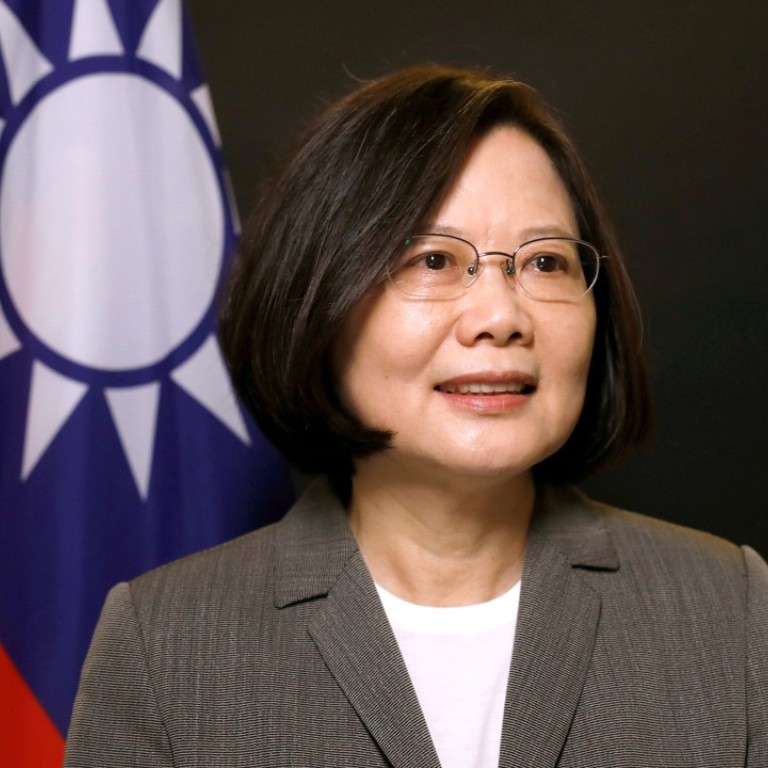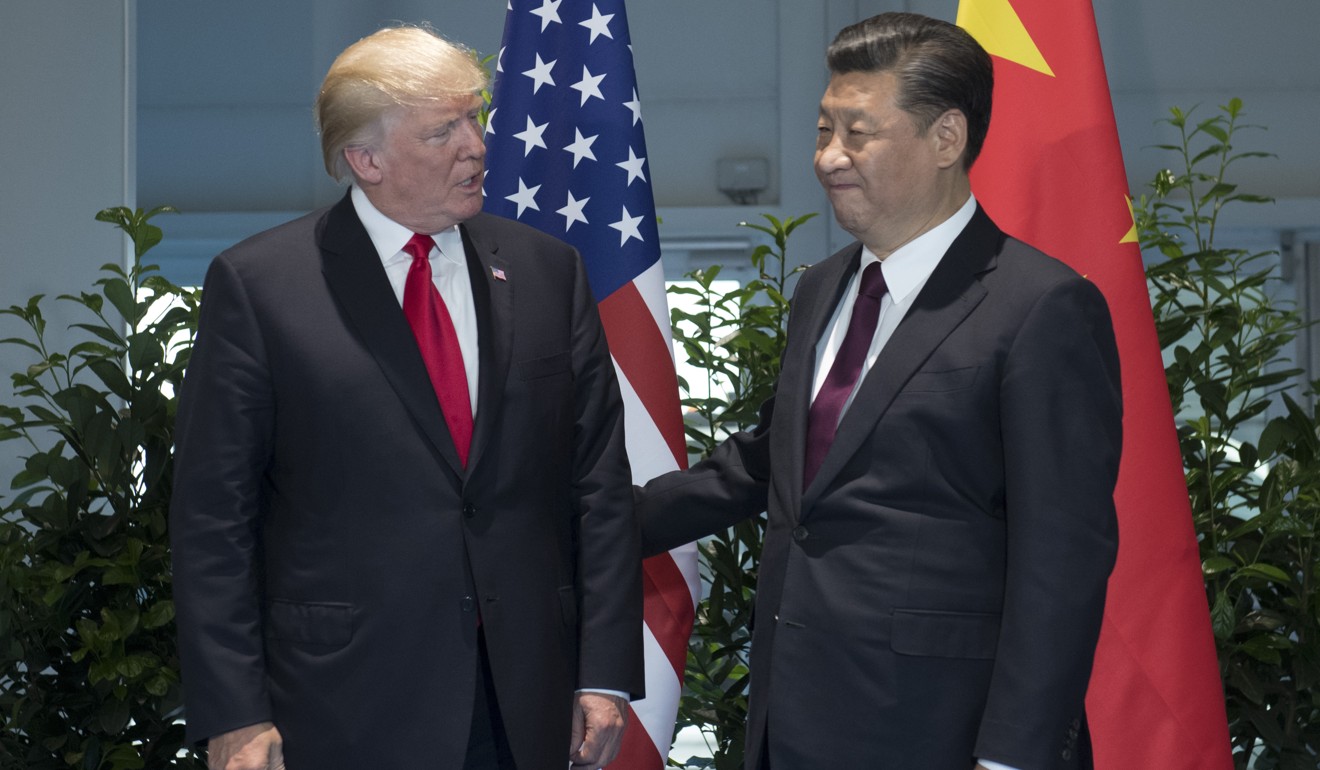
Taiwan keen to avoid becoming a bargaining chip between US and China during Trump’s Asia visit
President Tsai Ing-wen said she will be watching closely when American leader meets China’s President Xi Jinping
Taiwan will be keeping a close eye on US President Donald Trump’s visit to China next month amid concerns it could be used as a bargaining chip by the two global powers.
The island’s President Tsai Ing-wen said she had tasked her government with assessing the impact of Trump’s visit on the complex triangular ties between Washington, Beijing and Taipei, in which each party has a set modus operandi.
“Any adjustment or change to those models will be seen through the interactions of the respective parties,” Tsai was quoted as saying in an interview published yesterday by Taiwan’s semi-official Central News Agency.
“I will observe the interactions between the United States and mainland China, and the overall situation in Asia,” she said.
Trump is expected to meet President Xi Jinping during his first ever presidential visit to Asia from November 3 to 14. Taiwanese media reports have raised concerns that he might use Taiwan to gain concessions from Beijing on thorny issues such as trade, regional security and North Korea.

Before moving into the White House, Trump upset Beijing by questioning the need for the US to observe its one-China policy after making an unprecedented telephone call to Tsai. He later acquiesced after China offered to discuss trade disputes and North Korean issues.
Tsai also urged Beijing to consider her proposal to create a new model for handling cross-strait relations after its 19th National Congress which starts in two weeks’ time.
If the two sides continued to hold on to old thoughts and practices, it would be difficult for them to deal with the ever-changing situation in Asia and the region, she said.
Tsai said the same principle applied to the independence-leaning part she heads, the Democratic Progressive Party, which should also consider if there was a need for “new theories” in tackling cross-strait ties.
At the DPP congress last month, Tsai said the party should be more practical in handling relations with the mainland and urged its members to think about new ways of dealing with China’s rise.
Beijing suspended contact with Taipei after Tsai refused to accept the one-China principle.
Chang Wu-ueh, a professor of mainland studies at Tamkang University in Taiwan, said it would be difficult for Beijing to accept Tsai’s proposal for a new model for handling cross-strait relations, especially after Premier William Lai Ching-te last week became the first top official to publicly identify himself as a supporter of Taiwan’s independence.
“Though the mainland is aware that Tsai rather than Lai is in charge of cross-strait policy, what Lai said will only increase Beijing’s mistrust of Taiwan,” Chang said.
Lai’s comments, made during a parliamentary session on September 26, caused a political whirlwind in Taiwan, with opposition Kuomintang politicians lambasting him for creating trouble for Tsai.
Chao Chun-shan, adviser to the Cross-Strait Interflow Prospect Foundation, an independent Taiwanese think tank, said the United States would never agree to Taiwan gaining independence.
“Lai’s comments thus provide [Trump] with a bargaining chip in dealing with the mainland and maximising US interests.”

